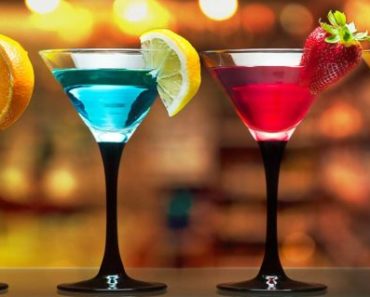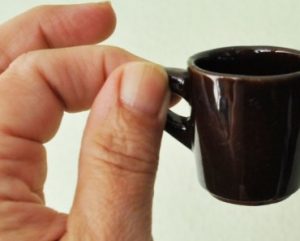[nextpage]
Alcohol is a popular drink in many formats: straight up, mixed with juices or colas, or simply as beer and wine. Drinking alcohol, however, impairs judgment, lowers inhibitions and decreases concentration. It also diminishes pain and leads to drowsiness. But how? Read to find out exactly what happens to your brain when you kick back with your favorite cocktail.
[/nextpage]
[nextpage]
1. Judgment: Gone

Relax. Unwind. A drink or two can definitely help many accomplish this task after a difficult day because of alcohol’s depressant sedative effect. It will make you less sensitive to pain as well as dull other senses, too, like sight and taste. It will also decrease your ability to judge situations accurately, and depending on the situation, your actions could be deemed funny…or dangerous. Let’s see how alcohol affects the brain.
[/nextpage]
[nextpage]
2. Effects: Quick

Past the lips and over the gums, look out brain, here it comes. Did you know 20% of the alcohol you drink is absorbed by the walls of an empty stomach, unlike food which just gets broken down there. This happens after one minute, and you can start to feel the effects within 5-10 minutes. The remaining 80% of the alcohol enters and is absorbed through the small intestine.
[/nextpage]
[nextpage]
3. Chemistry: Altered

Once in the bloodstream, the alcohol gets a tour of your body. When it makes it to your brain, the alcohol begins to affect the chemistry there, altering levels of neurotransmitters. These are the chemical messengers the send signals throughout your body and control thought processes, emotions and behavior. Alcohol affects both types of neurotransmitters, excitatory and inhibitory.
[/nextpage]
[nextpage]
4. Brain: Slower

One example of an excitatory neurotransmitter is glutamate. It’s also the most important. This amino acid increases the capacity and speed at which the brain receives messages. It also raises energy levels and is responsible for cognitive functions such as learning and memory. Alcohol prevents glutamate from being released, and this slows down your brain’s signal-receiving capacity and speed. If a tattoo artist asks if you want Hello Kitty on your forehead, alcohol will slow your ability to say “No” quickly enough.
[/nextpage]
[nextpage]
5. Body: Relaxed

An example of an inhibitory neurotransmitter is GABA. This amino acid blocks signals in the brain, calming the nervous system and relieving mental anxiety. Alcohol increases the effects of GABA. There are even supplements and drugs available that boost GABA. An article in Forbes warns against drinking alcohol while taking meds with benzodiazepines because the GABA effects can be amplified to life-threatening levels.
[/nextpage]
[nextpage]
6. Inhibitions: Removed

The cerebral cortex is the part of the brain behind the forehead. This is the area responsible for motor functioning, planning and organization abilities as well processing language and sensory information. Alcohol slows down information processing here and makes you less inhibited. Speaking and thinking clearly become difficult tasks. You’ve probably witnessed this when you ask your drunken friend a question and you get a prolonged stare in response.
[/nextpage]
[nextpage]
7. Balance: Distorted

The cerebellum is at the back base of the brain and controls movement coordination, balance, and equilibrium. (Do you see where we’re going?) Hundreds of millions of neurons here relay signals between the body’s muscles and brain. When enough vodka tonics reach the cerebellum, staggering and falling are sure to follow. If you’ve ever had to touch your nose with your eyes closed and your feet together, your cerebellum was being tested by somebody. If you’ve ever had to crawl across the street, you’re testing the limit of your cerebellum.
[/nextpage]
[nextpage]
8. Performance: Ineffective

The hypothalamus is near the center of the brain and is the size of a pearl. Though small, this portion of the brain has many jobs. It is responsible for producing essential hormones that regulate your body’s temperature and physical desires like thirst, hunger, mood and sex drive. Alcohol depresses nerve centers here, and although drinking may increase your sexual urge, the alcohol will diminish your performance in this area. Insert sad face. : (
[/nextpage]
[nextpage]
9. Functioning: On-Hold

The medulla has jurisdiction over vital automated responses such as breathing, blood pressure, heart rate and even sneezing and coughing to rid the body of invaders. It is cone-shaped and located in the brain stem. Alcohol’s depressant effects on this part of the brain lead to sleepiness. Too much alcohol hitting the medulla will result in signs of overdose: extremely slow breathing, slow heartbeat and even unconsciousness.
[/nextpage]
[nextpage]
10. Drink: Responsibly

As enticing as slurring and falling into bar stools might seem (sarcastic), what is the draw to drinking alcohol? For that, we look to the middle of the brain…to the nucleus accumbens. It is part of the rewards pathway which maintains motivation, satiety and pleasure. Alcohol causes a greater release of dopamine, the feel good chemical that produces feelings of euphoria and well-being. And that’s what causes us to say over and over again, “Cheers! Salud! Or L’Chaim!”
[Featured Image Credit: foxfiregeneva.com]
[/nextpage]




